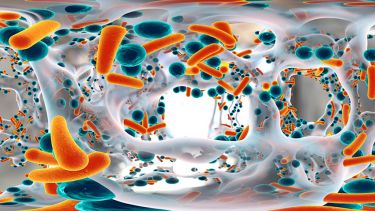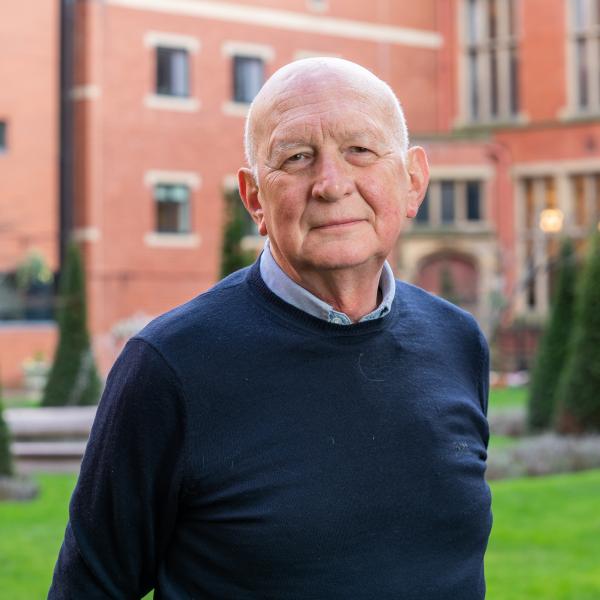Scientists at the University of Sheffield have demonstrated how a novel combination of drugs could be used to treat infections caused by multi-drug resistant bacteria.
The new research conducted by Professor Robert Poole and Dr Namrata Rana at the University of Sheffield in collaboration with research partners at the University of Surrey and the University of Würzburg, Germany, explored the use of metal complexes as adjuvants to traditional antibiotics that have become ineffective.
Antimicrobial resistance (AMR) is one of the biggest threats to global health. AMR occurs when a bacterium makes antibiotics ineffective. AMR occurs naturally but the misuse of antibiotics in humans and animals is accelerating the process.
The study published in the journal, Microbiology, revealed that the “antibiotic of last resort”, colistin, was significantly more effective against a multi-drug resistant Escherichia coli when combined with a triacarbonyl manganese molecule, developed by the University of Würzburg.
The University of Surrey have extended this study, funded by a collaborative Research Council grant, and published in PLoS One. Using a large panel of other strains of multi-drug resistant bacteria, they confirmed Sheffield’s findings. Additionally, they found survival rates of 87 per cent in an insect model of infection, when treated with a combination of triacarbonyl manganese molecule and the antibiotic, compared to a 50 per cent survival rate of those given only colistin.
Head author of the study, Professor Robert Poole from the University of Sheffield’s Department of Molecular Biology and Biotechnology said: “For many years we have been developing an understanding of the modes of action against pathogens of several metal complexes, but these results are particularly striking.
“Bacterial infections endanger human health worldwide, a threat that is compounded by the slow development of new antibiotics.
“We are approaching an apocalyptic ‘post-antibiotic era’. In 2015, researchers identified bacteria resistant to colistin, a drug that is often considered the last resort, in patients and livestock in China.”
To meet these ongoing challenges, numerous international initiatives on AMR have been launched, including a World Health Organisation (WHO) global action plan. One important approach is understanding how non-antibiotic antimicrobial agents act and could be used to help established antibiotics, like colistin. Antibiotics that are no longer effective could potentially be reactivated when used with this metal complex, providing medical professionals with more options in treating diseases.
Dr Hannah Southam, postdoctoral researcher from the University of Sheffield said: “Antimicrobial resistance is a global health problem. Public Health England estimates that 5,000 people die every year in England because antibiotics no longer work for some infections. The UK’s Chief Medical Officer, Dame Sally Davies, has declared AMR as ‘one of the greatest threats we face today’. One of the greatest concerns is that no new class of antibiotic has been developed for clinical use against Gram-negative bacteria like E. coli for over 40 years.
“The lack of antibiotic discovery and development is attributed to many factors such as the high costs incurred by pharmaceutical companies of bringing a new drug to market. Other factors include the limitations and restrictions in the deployment of any potential novel antimicrobial drug brought to market in the attempt to limit resistance to the new drug.”
The study was funded by Biotechnology and Biological Sciences Research Council (BBSRC) and the Leverhulme Trust.
This research builds on the University of Sheffield’s position at the forefront of world-class research into infectious diseases. Scientists at the University are developing radical solutions to the global threat of disease and antimicrobial resistance as part of signature research projects such as Florey, Imagine and the Sheffield Antimicrobial Resistance Network (SHAMROK).
The University is also training the next generation of highly skilled scientists through its undergraduate and postgraduate programmes to find exciting new approaches to bioscience and tackle some of the world’s biggest biomedical problems.



